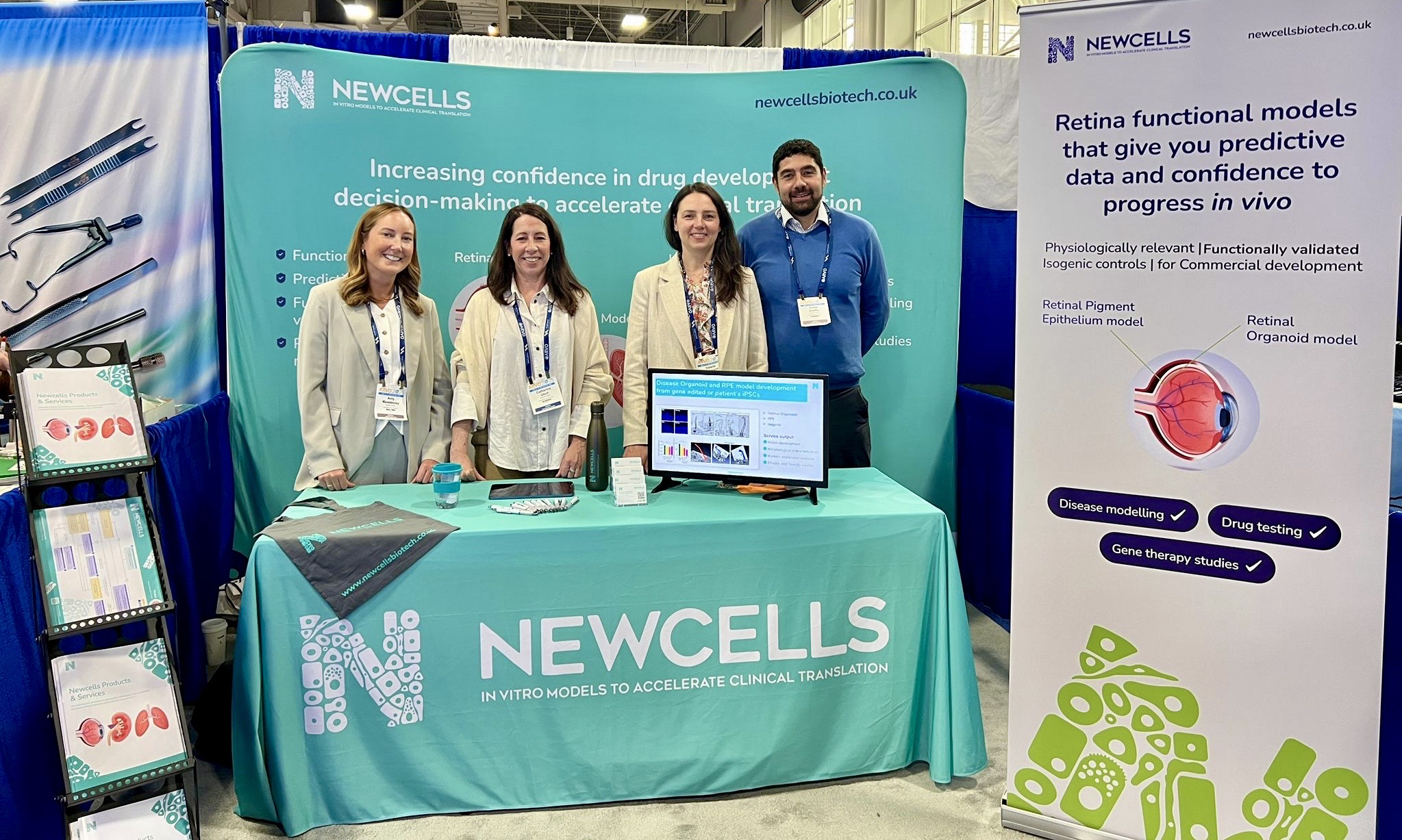ARVO 2025: Complexity, Confidence, and the Case for In Vitro
The ARVO 2025 Annual Meeting, organized by the Association for Research in Vision and Ophthalmology, took place from May 4–8, 2025, at the Calvin L. Rampton Salt Palace Convention Center in Salt Lake City, Utah . The event's theme, “Imagining Innovation and Intelligence in Vision Science,” underscored the transformative impact of emerging technologies such as artificial intelligence, gene editing, and advanced imaging on vision research. Attendees engaged in a diverse array of sessions, including symposia, poster presentations, and panel discussions, covering topics from molecular therapies and AI-driven diagnostics to novel surgical techniques.

Fresh from ARVO 2025, it’s clear that ophthalmic research is entering a new chapter—one defined by increased model sophistication, deeper mechanistic insight, and a growing appetite for translational relevance. The conference was abuzz with energy, underpinned by critical conversations about the future of disease modelling, therapeutic development, and regulatory readiness.
One of the dominant themes this year was model complexity. Studies are increasingly moving beyond simple monocultures to systems that better mimic the human retina—think co-cultures of neurosensory retina and RPE, retina-on-a-chip platforms, and even models of the blood-retinal barrier (BRB). These advancements allow researchers to ask more nuanced biological questions and better replicate the complexity of human disease, particularly in inherited retinal disorders (IRDs) such as USH2A, RP, and STGD1.
AI also had a strong presence—especially in clinical settings. The keynote highlighted its role in diagnostics and patient management, while broader sessions tackled the urgent need for clearer ethical and regulatory guidelines. It’s a space full of promise, but also responsibility.
Gene therapy continues to dominate therapeutic discussions, with a notable decline in interest around small molecules. Gene-agnostic approaches—those targeting common pathways rather than individual mutations—are gaining traction, reflecting the field’s desire for scalable solutions. This is accompanied by a visible increase in ocular studies involving large molecules, highlighting the need for more predictive and human-relevant models.
The value of the eye as a window into neurological health is also gaining serious attention. Several compelling studies connected retinal changes to early biomarkers of Alzheimer’s and other neurodegenerative conditions, reinforcing the potential for cross-disciplinary applications.
Model quality and reproducibility were another key focus. Many groups reported efforts to automate workflows and refine cell culture conditions to improve consistency—a crucial step if in vitro models are to meet regulatory and industrial expectations.
At Newcells, we’re proud to be leading the charge here. Our ability to provide both retinal organoids (ROs) and RPE from iPSCs puts us in a unique position. Despite the increasing complexity of in vitro models showcased at ARVO, it was striking how prominent the focus remains on in vivo services. The field is watching and waiting—but the shift is inevitable.
A particularly well-attended poster session demonstrated clear interest in iPSC-derived ROs and RPE, though broad adoption still feels tentative. Everyone is aware of the FDA’s recent push toward non-animal methods, but the reality is mixed—some are already exploring in vitro strategies, while others are holding back to see who will make the first move.
Lastly, there are clearly some concerns around US budget cuts that created a palpable undercurrent of uncertainty, particularly for academic labs. But even in the face of this, the scientific momentum at ARVO was undeniable.
The message from ARVO 2025 is clear: complexity is rising, and in vitro models are ready to rise with it. We’re excited to be part of that journey.
Arrange a meeting with our team
Book a CallShare on social media:
Don't miss out on our latest innovations: follow us on Linkedin


